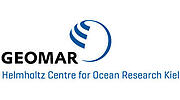Project
OceanNETs - Analyzing the feasibility, risks, and co-benefits of ocean-based negative emission technologies for stabilizing the climate

Start of Project: 01.07.2020 — End of Project: 01.06.2024
Up to now, the focus of the discussions around these so-called Negative Emission Technologies (NETs) lies especially on land-based measures such as reforestation or bioenergy with carbon capture and storage (BECCS). Their use is strongly limited by the availability of arable land. Ocean-based measures have yet hardly been considered at all, although the ocean is by far the largest carbon reservoir in the global carbon cycle.
Starting July 2020, scientists from 14 institutions in six countries will spend four years studying the opportunities and risks of ocean-based technologies of such “negative emission”. The EU funds the OceanNETs project within the Horizion2020 program with a total of 7.2 million Euros. Two of the socio-economic work packages are led by the Kiel Institute for the World Economy.
The IfW investigates how ocean-based NETs can be integrated into climate policy, which requirements have to be met regarding the allocation of CO2 certificates and which distributional effects and strategic incentives occur. As a further aspect, the public perceptions of ocean-based NETs are investigated in order to define the conditions of political feasibility.
The Ocean NETs project has received funding from the European Union’s Horizon 2020 research and innovation programme under grant agreement number 869357.




